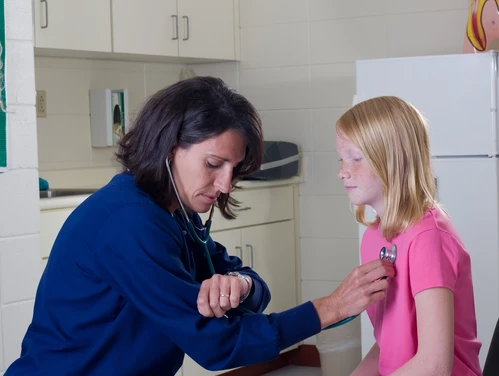Table of Contents
Content Information
School nurses and school health personnel play a crucial role in supporting students experiencing menstrual difficulties. They provide a safe space for students to discuss concerns, offer guidance on managing symptoms, collaborate with students' parents, and connect parents and students with appropriate resources for further care if needed. While school nurses and school health personnel are often the first point of contact for students with menstrual pain or difficulties in the school setting, their support extends beyond pain management to include education, destigmatization, reducing absenteeism, and providing resources.
General actions when a student experiences menstrual difficulties in their school or program:
- Ensure students have access to water, sanitation, and disposal facilities.
- Providing a safe and supportive environment.
- A school may request donations of supplies from community providers to assist students in their school community who do not have access to hygiene supplies.
- Offer nonmedical support: (non-inclusive list):
- a space for supplies and hygiene products,
- privacy,
- heat application (if applicable),
- providing short rest periods (if needed).
- Offer guidance on managing menstrual pain, including suggesting over-the-counter pain relievers only if parents have provided consent and in accordance with school policy.
- If the student is experiencing menstrual difficulties that impact their access to their education program, encourage the parents to contact their healthcare provider.
